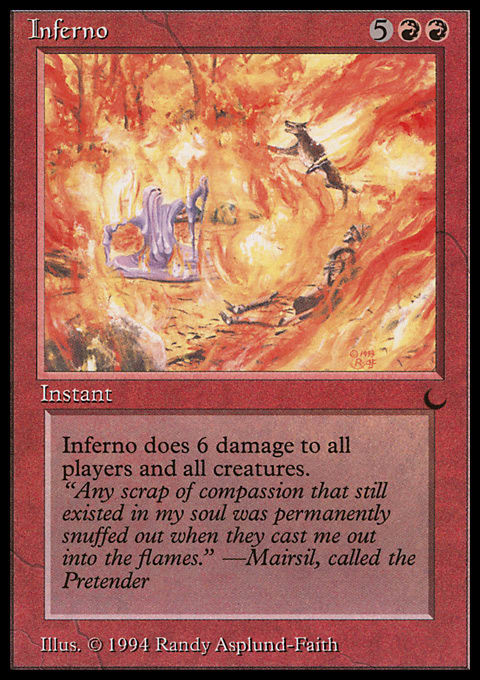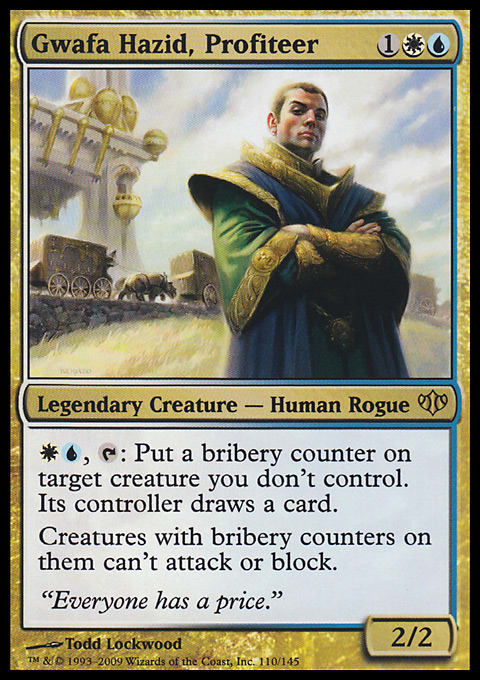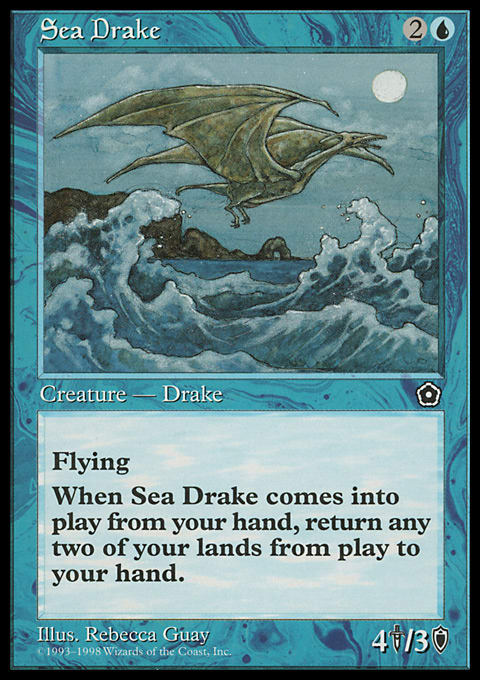Welcome back, everyone.
I know last week I mentioned something about talking about how to network, but there’s no way anyone wants to read that article, and I don’t feel the need to write it. You either know how to network or you’re going to find out how to network from someone who doesn’t write about a collectible card game. I’ll probably refrain from calling out the topic of my next article because what I am interested in talking about today came to me the same way the Twitter article did: in a flash of inspiration.
I want to talk to you about your local game store (LGS).
Your LGS Matters
My first contribution to GatheringMagic regaled you with a tale of a plucky young lad (some artistic license taken) who never became any good at Magic until he stopped being the best player in his high school and started being the worst player in his college town. My home town had an LGS that occasionally ran Magic events until a few of the messier players convinced him he’d rather contract a communicable disease from a toilet seat (his imagery) than continue catering to the Magic-playing crowd. Lacking a place to congregate and share ideas with those outside our playgroup, my group retreated to kitchen tables, and I spent about five years of crucial developmental time slowly unlearning how to play Magic correctly. I went to college, there was a thriving Magic scene there, and the rest is history.
If you’re reading Magic articles, you’re probably someone who lives in a community that has its act together and probably has an LGS where people congregate. I am sure there are exceptions, but for the most part, my readers are a part of a community where Friday Night Magic is a weekly Friday ritual as sacred to them as high school football is to the people who don’t see the irony in calling Magic players nerds on their way to go do a fantasy football draft. You derive part of your identity (for better or worse) to some extent from the store where you play (especially if that store has a team), and when that store is thriving, so are you. Fifty people show up for FNM, there are new trade binders all the time, you can meet there to drive to an event in one car; the benefits are plain to see.
It’s more readily apparent that the LGS depends on the player base. Players buy drinks, sell collections, pay for entry fees, and buy singles, sleeves, and accessories. Their money keeps the lights on. Courting and maintaining a customer base is essential to the store’s continued survival—that’s ECON 101.
What isn’t as obvious, however, is the extent to which the players depend on the store.
Your LGS Matters to You
Picture your favorite LGS. Now picture the owners of your LGS packing a few meager possessions into a late-model Toyota Tercel with rusted doors and then dousing the storefront of the LGS in Kerosene in a vain attempt to collect insurance money. What are you doing, LGS owners? Do you even know how sensitive a gas chromatograph is? A common household dog could detect traces of Kerosene, here! You don’t think the arson investigator has a dog? Ever heard of a Dalmatian? Put the can down, you moron. We can talk about this.
If your LGS were vacated (and possibly set on fire), you would have to find somewhere else to play. Maybe you’re lucky and you live in a town that can support more than one LGS or there is another one within convenient driving distance. For some, though, if the LGS closed, it would have a huge detrimental impact on them. No more FNM. No more casual nights. No more trade binders, board game demos, or prereleases. You could turn to the Internet, but that makes it a lot tougher to make the kind of interpersonal connections that are vital to your continued existence as a player. In short, if your LGS closed up shop for good tomorrow, you’d probably miss it, and it would be sooner before later. Like it or not, your success is partially tied to having that hub for Magic in your area.
What You Do for Your LGS Matters
I was debating the merits of writing a primer about buying collections from Craigslist because the feedback I have been hearing from people is, “It’s hard to make a profit,” and my natural response to that is, “Then you’re paying too much.” I kicked the idea around on Reddit and received some pretty guttural feedback from a user who hated the idea of MTG finance on principle because he claimed it led to his LGS closing. At first, I thought, “Say WHAAAT?” but is he wrong? A few people buying collections on Craigslist for more than the store wants to pay isn’t going to bring a well-run LGS to its knees after all. It takes a lot of failures on a lot of different fronts to bring down an LGS that wasn’t going to fail on its own, and to what extent does private collection-shopping even really affect the store financially? The titans of MTG finance don’t shop their collections to their LGS, but the players who aren’t in this for the money (almost all of them) are going to buy and sell at the LGS regardless. However, what if his LGS wasn’t a well-run LGS? I started thinking: Players rely on bad stores, too.
The LGS in my hometown thirty minutes away—the one from earlier that discontinued Magic night—also discontinued singles sales and stuck to sealed product. I was lucky enough to have the kind of relationship with the owner that I convinced him to let me sell my cards in his case and pay him a percentage—more foot traffic for me, free money for him, and everybody wins. But his store is lucky that comic book sales alone can sustain the store. Most stores that cater to the Magic crowd need to make all the money they can on singles sales, and that includes buying collections to keep their shelves stocked. The overhead associated with keeping a store running has caused the sale price of singles to seem really high compared to what they are online. An online store has much lower overhead, and your LGS just can’t compete with their prices for the most part. A lot of people balk at the idea of paying more for singles.
But are you really paying for just the card? Isn’t the difference between the online price and the in-store price paying for the lights, the tables, the staff, and the rent? If you had to pay $5 a month for a membership to the LGS or risk it closing forever, that might seem somewhat reasonable if you were faced with no place to play. Well, depending on how much you pay for singles, you probably pay less than $5 a month more than you would online. That’s something to think about the next time you look at how much a card is in the display case and decide you can wait a week for it to show up from a website.
What Happens at Your LGS Doesn’t Matter to Me
Folks, I don’t really have a dog in this fight. No store put me up to writing this. If the LGS in the town where I live now closed, it may actually benefit me as a financier in the short term because people would rely on me for cards more than ever before—I’d have more collections, and so on.
But that doesn’t even appeal to me. I like my LGS, and I want to keep it around. I like having a place to go and trade on Tuesday and Fridays. I like the fact that they have Oingo Boingo and They Might Be Giants in their iPod. I like every fourth Friday night being Two-Headed Giant Sealed for Limited. I like that it’s a convenient meeting place to conduct business. None of that would be possible if the LGS were gone, and the community wouldn’t be better off. Even I wouldn’t because even if people came to me for cards at first, with nowhere to play, there would soon be no one to play. It would be worse for everyone.
I don’t think the collection I found on Craigslist this afternoon would have made their year if they’d found it before I did. But I know for a fact the collection last week—the one for which I told the guy to take it by the LGS and see what they offered him, and I’d see if I wanted to beat their offer—ended up on their shelves. I figured it would. After all, that store isn’t my competition, and I’m not trying to hurt it. So maybe when I head in there tomorrow, I will take another look at those Sea Drakes in the case for $20 each. I know I can find them for less than that. But maybe it’s not just about how little I can pay for a card, and it’s about what I receive in return for that extra money. I’m paying extra to have a store to call my own, to be a part of a community, and to have a place to hang out. In the long run, I’m investing in the overall game of Magic by paying the upkeep on a place to nurture the next generation of players who will carry the torch into the next decade and make sure this game lives forever.
Besides, I can totally talk them down to like $17. I mean—$20? Who are they kidding!?



























